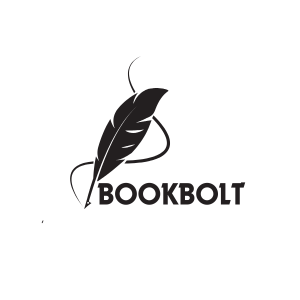In a world where clarity is key, technical writing training is the secret sauce that transforms mere mortals into communication superheroes. Imagine wielding the power to turn complex jargon into user-friendly guides faster than a speeding bullet. Whether it’s manuals, reports, or online help, mastering technical writing can save the day—and your sanity.
But let’s face it, nobody wants to read a manual that sounds like it was written in a foreign language. With the right training, anyone can learn to write with precision and flair. It’s not just about putting words on a page; it’s about making sure those words actually make sense. So buckle up and get ready to dive into the world of technical writing, where clarity reigns supreme and confusion goes to die.
Technical Writing Training
Technical writing training focuses on equipping individuals with essential skills to create precise documents. Courses cover various types of writing such as manuals, reports, and proposals. Participants learn to translate complex information into user-friendly content.
Training emphasizes the significance of clarity and organization. Clear communication enhances understanding, particularly in fields like engineering and software development. Structured lessons guide learners through best practices in formatting and style.
Workshops often include hands-on exercises, allowing participants to apply theoretical concepts. Feedback from instructors provides valuable insights for improvement. Real-world examples illustrate how effective technical writing impacts various industries.
Performance assessments gauge skill development throughout the training. Metrics may include clarity scores and audience comprehension ratings. These evaluations help pinpoint areas that require further attention.
Instructors typically possess extensive industry experience, offering expert guidance. By learning from professionals, students gain practical knowledge directly applicable to their careers. Networking opportunities also arise during training sessions, fostering connections with peers and industry leaders.
Overall, technical writing training serves as a foundation for those looking to excel in this critical field. Mastery of these skills can lead to enhanced career prospects and greater contributions to organizational success.
Importance of Technical Writing

Technical writing training enhances communication by creating clear, user-friendly content. Mastering this skill transforms complex information into easily digestible formats.
Clarity and Precision
Effective technical writing prioritizes clarity and precision. Writers convey complex ideas in straightforward language, minimizing confusion. Structured documents like manuals and reports use clear headings, concise paragraphs, and bullet points for easy navigation. Readers benefit from precise instructions and well-defined terms. Mistakes due to ambiguity diminish as writers develop effective technical communication skills. Additionally, training emphasizes best practices in formatting and terminology, ensuring documents meet professional standards. This focus on clarity not only makes information accessible but also builds trust with the audience, fostering effective knowledge transfer.
Audience Consideration
Understanding the audience plays a critical role in technical writing. Tailoring content to specific user needs enhances engagement and comprehension. Writers assess the audience’s background, expertise, and expectations to deliver relevant information. For instance, technical documentation for engineers differs significantly from user guides intended for non-technical consumers. By using appropriate language and examples, writers address diverse learning styles effectively. Feedback mechanisms, such as user testing and surveys, further refine content based on audience reactions. Prioritizing audience considerations makes technical writing more effective, ensuring users grasp complex concepts easily while increasing the overall utility of the documents produced.
Types of Technical Writing Training Programs
Various training programs exist to enhance technical writing skills. These programs cater to the distinct needs of aspiring technical writers.
In-Person Workshops
In-person workshops offer hands-on experiences that improve writing capabilities. Participants engage in interactive sessions, focusing on document structure and clarity. Expert instructors provide real-time feedback, allowing attendees to refine their skills immediately. Networking with peers facilitates knowledge sharing, enriching the learning environment. Workshops often last one to three days, providing intensive immersion into technical writing principles.
Online Courses
Online courses provide flexibility for individuals balancing multiple commitments. Learners access materials anytime, accommodating various schedules and learning paces. Comprehensive modules cover essential topics like audience analysis, formatting standards, and editing techniques. Assessments throughout the course gauge understanding and track progress. Many platforms offer a mix of video lectures, readings, and discussion forums, creating an engaging learning experience.
Certification Programs
Certification programs enhance credibility in the technical writing field. These programs often culminate in recognized credentials that demonstrate proficiency and commitment. They typically require completion of coursework and successful passing of an exam. Employers value these certifications as they indicate a rigorous understanding of industry standards. Various organizations offer certifications, allowing individuals to choose pathways that best fit their career aspirations.
Essential Skills Developed in Training
Technical writing training equips individuals with vital skills crucial for effective communication in complex fields. The curriculum focuses on several key areas that enhance overall proficiency.
Writing Skills
Clear writing emerges as a fundamental skill in technical writing training. Writers cultivate the ability to break down intricate concepts into straightforward language. Clarity dominates the writing process, with an emphasis on concise sentences and relevant terminology. Various exercises enable writers to practice generating user-friendly manuals, reports, and proposals. Structured formatting reinforces ideas, encouraging organized thoughts for ease of understanding. Documentation typically uses consistent styles, improving navigation.
Research Skills
Training instills strong research skills essential for accuracy in documentation. Participants learn how to identify credible sources of information efficiently. Effective audience analysis is a critical component, allowing writers to tailor content to specific user needs. Understanding how to gather data thoroughly enhances the reliability of documentation. Conducting interviews and surveys fosters deeper insights, while synthesizing findings streamlines the writing process. Knowledge in this area reflects in the final output’s substance and relevance.
Visual Communication
Visual communication plays a significant role in technical writing training. Incorporating graphics, charts, and diagrams clarifies complex information. Visual elements complement textual content, improving reader comprehension. Training emphasizes the balance between visuals and text to maintain focus on key messages. Writers learn best practices for creating visually appealing documents that enhance engagement. Familiarity with design principles ensures that visuals support the narrative effectively.
Conclusion
Investing in technical writing training is a strategic move for anyone looking to enhance their communication skills. By mastering the art of clear and precise writing, individuals can effectively convey complex information to diverse audiences. This training not only improves writing quality but also opens doors to new career opportunities.
With structured courses and expert guidance, participants gain valuable insights into best practices and essential techniques. They learn to tailor content for specific audiences while incorporating visual elements that enhance understanding. As they develop these skills, they become more confident in their ability to produce high-quality documentation that drives clarity and engagement. Embracing technical writing training ultimately leads to professional growth and a lasting impact on organizational success.

